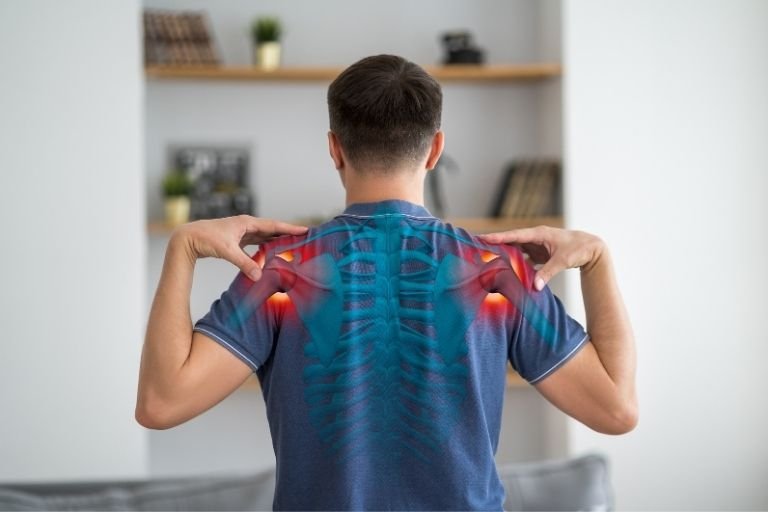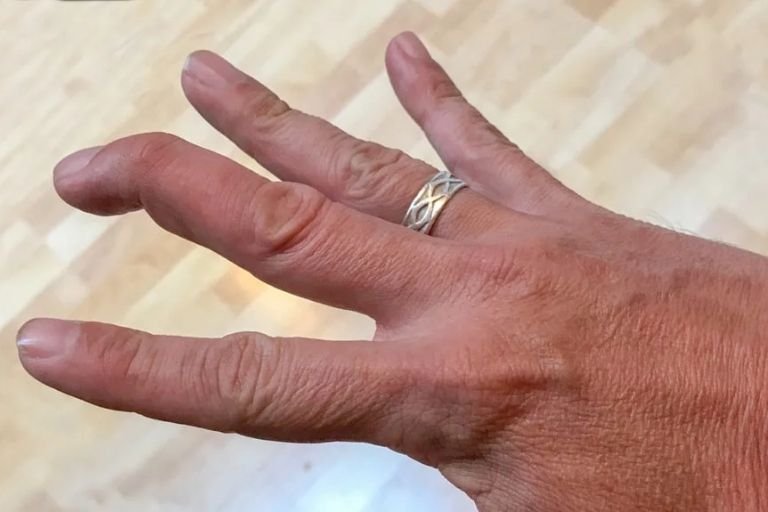- Fitwell Physiotherapy
Obesity

Obesity is a complex health condition characterized by excessive accumulation of body fat, which can lead to various health complications. It’s not just about being overweight; it’s a serious medical condition that requires attention and management.
Please submit your details below.
Symptoms:
- Weight gain: Rapid or gradual increase in body weight beyond what is considered healthy for a specific height.
- Increased body fat: Visible accumulation of fat around the abdomen, hips, thighs, and other areas.
- Breathlessness: Difficulty breathing, especially during physical activities.
- Fatigue: Feeling tired and lacking energy, even after minimal exertion.
- Joint pain: Experiencing discomfort or pain in the joints due to increased pressure from excess weight.
Causes:
- Poor diet: Consuming excessive calories, particularly from unhealthy, processed foods high in fats and sugars.
- Sedentary lifestyle: Lack of physical activity and prolonged periods of sitting or inactivity contribute to weight gain.
- Genetics: Family history and genetic factors can predispose individuals to obesity.
- Psychological factors: Emotional eating, stress, depression, and certain mental health disorders can influence eating habits and contribute to obesity.
- Medical conditions: Hormonal imbalances, such as hypothyroidism, and certain medications may cause weight gain.
When to See a Physiotherapist:
- If obesity is accompanied by joint pain, limited mobility, or difficulty in performing daily activities.
- When starting an exercise program to ensure safety and effectiveness.
- To receive guidance on proper posture and body mechanics to prevent injuries.
- If experiencing any musculoskeletal issues related to obesity, such as back pain or osteoarthritis.
Risks:
- Type 2 diabetes: Obesity significantly increases the risk of developing insulin resistance and type 2 diabetes.
- Cardiovascular diseases: Obesity is a major risk factor for heart disease, including hypertension, coronary artery disease, and stroke.
- Joint problems: Excess weight puts added pressure on joints, leading to osteoarthritis and other musculoskeletal issues.
- Sleep apnea: Obesity is closely linked to sleep disorders such as obstructive sleep apnea, which can have serious health consequences.
- Mental health issues: Obesity can contribute to low self-esteem, depression, and other psychological challenges.
How to Prevent:
- Maintain a balanced diet: Focus on consuming a variety of nutrient-dense foods, including fruits, vegetables, lean proteins, and whole grains.
- Stay active: Incorporate regular physical activity into your daily routine, aiming for at least 150 minutes of moderate-intensity exercise per week.
- Monitor portion sizes: Be mindful of portion sizes and avoid oversized servings, especially of high-calorie foods.
- Manage stress: Find healthy ways to cope with stress, such as exercise, meditation, or hobbies, to prevent emotional eating.
- Get enough sleep: Aim for 7-9 hours of quality sleep each night to support overall health and weight management.
Treatments:
- Diet and lifestyle modifications: Work with a registered dietitian or nutritionist to develop a personalized meal plan and incorporate sustainable lifestyle changes.
- Exercise programs: Consult with a physiotherapist or personal trainer to create a safe and effective exercise routine tailored to individual needs and capabilities.
- Medications: In some cases, medications may be prescribed to aid weight loss, typically in combination with diet and exercise.
- Bariatric surgery: For severely obese individuals who have not achieved success with other treatments, bariatric surgery may be recommended as a last resort to reduce food intake or limit nutrient absorption.
In conclusion, obesity is a multifaceted health issue that requires a comprehensive approach for prevention and management. By adopting healthy habits, seeking professional guidance, and addressing underlying factors, individuals can take control of their weight and improve their overall well-being.
Frequently Asked Questions
Related Conditions
How Fitwell Physiotherapy Can Help?
Dr. Richa’s Fitwell physiotherapy has an extensive team of physiotherapists all within their own specialist areas of physiotherapy. Whatever your condition, we guarantee that we will have the best physiotherapist for you. We assess, diagnose, plan, cure and care for you.
Fitwell Physiotherapy Clinic, Pune provides you best physiotherapy treatment in Kharadi, pune. We also serve Chandan Nagar, Vadgaon Sheri, Keshav Nagar, Wagholi & nearby Areas in Pune. We are experts in treating Neck Pain, Hand Pain, Back Pain, Lower Back Pain, Knee Pain, Stiff Neck, Sciatica, Arthritis, Stroke Paralysis & Post Surgical Rehab.
We provide Specialized physiotherapy treatments in Sports Injuries, Pre and post Surgery, Neurologic, Pediatric, Chronic Pain/Fatigue, Rheumatology, Women’s Health, Men’s Health, Ergonomics, Vestibular, Amputees & all sort of Pain treatment and lifestyle conditions.

































































































